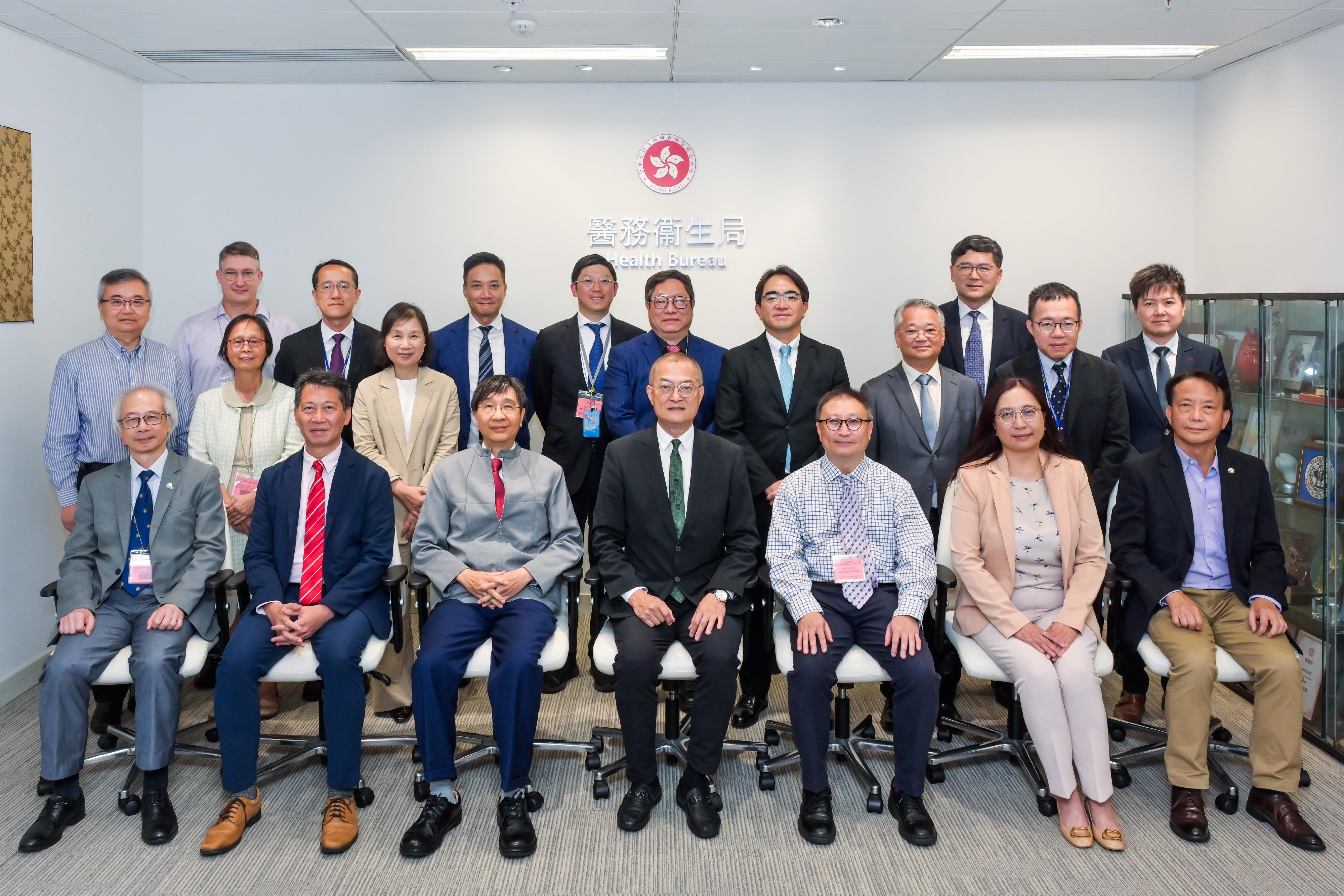Secretary for Health chairs 10th meeting of High Level Steering Committee on Antimicrobial Resistance (with photo)
******************************************************************************************
Professor Lo said, "AMR poses a significant challenge to public health. Since human health is closely intertwined with the health of animals and the environment, a 'One Health' approach is required to tackle the issue of AMR, and interdepartmental and multidisciplinary co-ordination and collaboration are particularly important. I am pleased to see continuous improvements in various aspects through cross-sector collaboration."
Under the leadership of the Steering Committee, a series of initiatives laid down in the Action Plan were implemented, including the launch of the Computerised Transaction Record System on June 19 this year for voluntary participation by licensed pharmaceutical traders (including pharmacies), while legislative amendments will be initiated in a timely manner to mandate the systematic recording of antimicrobial prescriptions and dispensing through electronic means; enhancing surveillance and dissemination of AMR data in food; and implementing the "veterinary prescription-only medication supply" policy in local food animal farms.
At today's meeting, the Steering Committee evaluated the latest local situation of AMR by analysing the relevant latest surveillance data from various sectors:
- Human health data showed that the wholesale supply of antimicrobials to community pharmacies continually dropped from 18.5 per cent in 2016 to 3.4 per cent last year. Moreover, out of the total antibiotic supply in Hong Kong, the proportion of the antibiotics under the "Access" classification of the World Health Organization (i.e. antibiotics less likely to result in resistance) has increased from 55.8 per cent in 2016 to 62.2 per cent last year. The results from the 2024 survey on AMR by the Centre for Health Protection (CHP) of the Department of Health (DH) also demonstrated improvements in the knowledge, attitude and practice on antibiotic resistance among the general public.
- The Hospital Authority (HA) has been promoting the prudent use of antimicrobials through its Antibiotic Stewardship Programme (ASP). The HA introduced an electronic platform known as "Smart ASP" last year to leverage data analytics to generate automatic reminders to clinicians to facilitate the review of antibiotic usage. In 2024, the use of relevant broad-spectrum antibiotics had dropped by 3.1 per cent compared with 2023. Furthermore, the HA closely monitors AMR patterns, for instance, Methicillin-resistant Staphylococcus aureus (MRSA) and Carbapenem-resistant Acinetobacter (CRA), which showed a reduction by 0.6 and 3.3 percentage points respectively in 2024 compared with 2023.
- With regards to animal health, the Agriculture, Fisheries and Conservation Department (AFCD) has commenced a phased withdrawal of the Antibiotics Permits previously issued to local livestock farmers since October 1, 2020, to progressively implement the "veterinary prescription-only medication supply" policy as well as to tighten the regulation on the use of antimicrobials in animal husbandry, in particular those critically important antimicrobials for humans. With the provision and maturation of veterinary services and pharmaceutical supplies to local livestock farmers supported by the Sustainable Agricultural Development Fund, the AFCD has ceased issuing relevant permits. The "veterinary prescription-only medication supply" policy has been fully implemented since January 1 this year.
- With regard to food safety, the Centre for Food Safety (CFS) of the Food and Environmental Hygiene Department (FEHD) has taken a series of measures, including organising workshops for food handlers, formulating guidelines for the food trade, conducting joint inspections and promoting public education, with a view to further enhancing public awareness of AMR and the importance of personal and environmental hygiene. The CFS stresses that the most effective way to reduce AMR bacteria in food is to observe the Five Keys to Food Safety, namely, choose safe raw materials, keep hands and utensils clean, separate raw and cooked food, cook thoroughly, and keep food at safe temperatures, in daily life.
- The Environmental Protection Department (EPD) commissioned local universities and testing institutions to conduct baseline surveys on residual antibiotic amount and environmental AMR levels respectively in different environmental waters (seawater, rivers, beaches, etc) during the period from 2020 to 2025. The findings of the surveys showed that the median levels of residual antibiotics in the local aquatic environment were below the "Predicted No Effect Concentration", indicating that there was no material impact on the aquatic environment. Moreover, the surveys found that the levels of Escherichia coli and its resistance to key classes of antimicrobials, such as carbapenems, third-generation cephalosporins, etc in the local aquatic environment were generally low, indicating the relatively low risks to the associated environment and human health.
The Steering Committee will continue to make every effort to combat the threat of AMR through multi-sectoral collaboration. The progress achieved so far underscores the importance of implementing evidence-based strategies, strengthening surveillance and research, and enhancing public awareness.
For detailed information about AMR and the Action Plan, please visit the thematic website of the CHP.
Chaired by the Secretary for Health, the Steering Committee was set up in May 2016 and comprises representatives from the DH, the AFCD, the FEHD, the EPD, public and private hospitals, healthcare organisations, academia and relevant professional bodies.
Ends/Monday, July 7, 2025
Issued at HKT 17:45
Issued at HKT 17:45
NNNN





